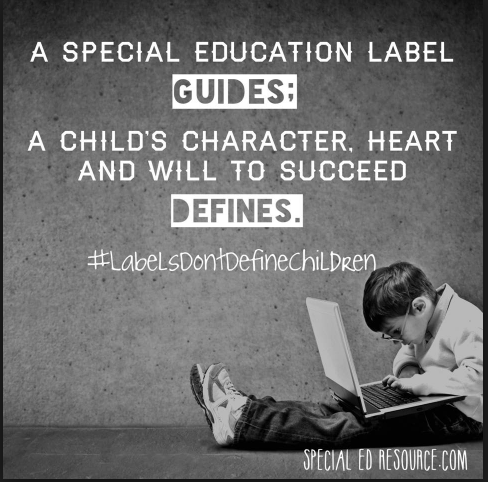Working...

There are many students who have special learning needs. These needs are addressed through Special Education.
Special Education is a placement to provide individualized additional services, supports, programs, specialized placements or environments to ensure that qualifying students' educational needs are met. The range of special education support varies based on individual needs.

Special education is provided to qualifying students at no cost to the parents.
Special Education is governed by the following rules and regulations listed below:
|
(Individuals with Disabilities Education Act) (Part B of IDEA is focused on services to school-aged children with disabilities. This includes preschoolers (ages 3-5) and children in K-12. Regulations for this part of the law, as reauthorized in 2004.) |
IDEA is a federal law that provides service and support to children with disabilities. IDEA governs how states and public agencies provide early intervention, special education, and related services to children aged birth to 21 years. This law ensures that children with disabilities receive a "free appropriate public education" (FAPE) designed to meet unique learning needs in the least restrictive environment. |
|
Nebraska Department of Education's Regulations and Standards for Special Education Programs |
This policy manual presents the state of Nebraska's regulations and standards for special education programs that are effective May 29, 2016. The regulations include a declaration of responsibility, provide the statutory authority, and address the following areas: (1) definitions of disabilities and other relevant terms; (2) responsibility for special education programs, including participation by nonpublic school children, and program standards reviews; (3) establishment and administration of special education, including early intervention; (4) identification of children with disabilities, multidisciplinary education team requirements, and eligibility for special education; (5) individualized education programs, individualized family service plans, and parent participation; (6) placement of children with disabilities and suspension and expulsion of students with disabilities; (7) procedural safeguards, including accessibility and confidentiality or records, procedural timelines, parental notice, parental consent, and complaint procedures; (8) qualifications for special education personnel; (9) school district budget process for school age programs; (10) school district budget process for early childhood special education programs; (11) contracted programs; and (12) special education transportation, including transportation for nonresident high school students. (CR) |
|
Parental Rights For further information or questions regarding these rights, you may wish to contact special education personnel. Also, contact: |
As a parent of a child with a disability, you have certain rights which are guaranteed by the state (Rule 51) and federal (Individual with Disabilities Education Act--IDEA) laws. Those procedural safeguards, or rights, are contained in this document. The Individuals with Disabilities Education Act (IDEA), the Federal law concerning the education of students with disabilities, requires schools to provide parents of a child with a disability with a notice containing a full explanation of the procedural safeguards available under the IDEA and the federal regulations. A copy of this notice must be given to parents only one time a school year, except that a copy must be given to the parents: (1) upon initial referral or parent request for evaluation; (2) upon receipt of the first State complaint under 34 CFR §§300.151 through 300.153 and upon receipt of the first due process complaint under §300.507 in a school year; (3) when a decision is made to take a disciplinary action that constitutes a change of placement; and (4) upon parent request. |